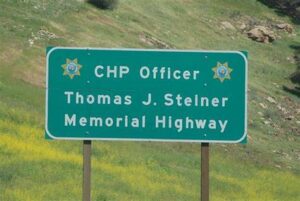TULSA, Okla. — As my wife and I have trekked across the western half of the United States I am struck by something I have seen all along the way.
Many sections of interstate and intrastate highways have signs honoring individuals’ memories. They usually are police officers or state troopers or are military men and women.
We settled into this city for a couple of nights after traveling along a stretch of U.S. 169 that contained in the span of about five or six miles four signs identifying four individuals after whom the highway is named.
I see the signs and wonder: What are the stories behind these people? Why do states or local governments choose to honor them? What did they do to earn this eternal memorial?
Hey, I am just a curious American motorist who wants to know things such as this.
This country has turned an important corner over the past two or three decades in honoring the men and women who serve in our nation’s military, as well as those who suit up to protect and serve as members of our law enforcement network.
Why not erect historical plaques near the signs identifying these individuals that would explain to motorists who would be interested to stop and read them just why the highway carries an individual’s name?
Texas does a wonderful job of placing historical markers along its tens of thousands of miles of highway. It doesn’t explain to motorists why some stretches of highways carry signs honoring the memories of law enforcement and military personnel.
Our nation was built by heroes. I suspect all the individuals whose names are on those signs have committed acts of heroism that cost them their lives.
I would like to know their stories.

